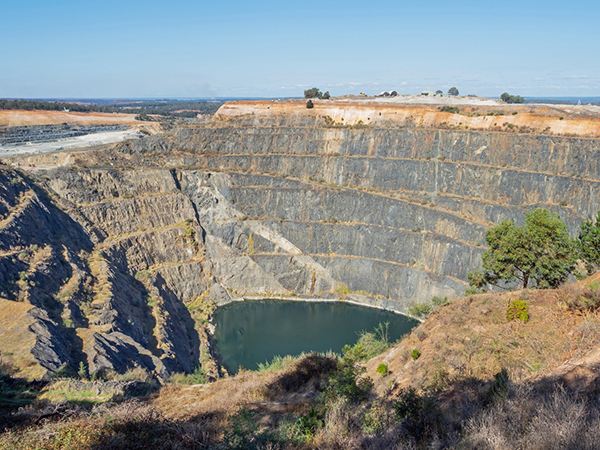Critical raw materials and the low-carbon transition

This research project is investigating the implications of the central role that several ‘critical’ raw materials, including certain minerals, will play in expanding the deployment of low-carbon technologies to support the transition to net zero. It is led by Dr Simon Dikau, Dr Romain Svartzman and Hugh Miller.
Work focuses include:
- Development of scenarios to better understand the potential constraints on supply and demand for ‘transition-critical materials’ (TCMs) [see below], taking into account geopolitical, physical, social and financial considerations. For example, in one scenario there could be insufficient supply of a TCM due to pressure exerted by a country controlling its value chain.
- Assessment of the impacts of such scenarios on global value chains, to better understand which countries, sectors and companies (and ultimately financial institutions) might be particularly vulnerable to supply risks.
- How this reorganisation of global value chains could affect the balance of payments of different countries, as there could be impacts on global imbalances and debt sustainability for some.
- Study how these different constraints could lead to increased price volatility (and consequent financial vulnerabilities), including in commodity derivatives markets, or inflationary pressures.
Why is it important to understand the landscape of critical minerals/materials?
The transition to a net zero global economy requires the deployment of clean energy technologies at significant scale and speed, if we are to achieve a transition aligned with meeting the Paris Agreement temperature targets. These technologies require several critical inputs that are described as ‘transition-critical materials’ (TCMs) as a result and supply of these materials must be scaled up substantially to transform the global energy supply system from one dominated by fossil fuels to one based on renewable energy technologies. These technologies are typically more materials-intensive than their fossil fuel counterparts. For example, electric vehicles require six times more materials than conventional vehicles. The International Energy Agency estimates between a four- and six-fold increase in demand for TCMs between 2020 and 2030.
These increases in demand may place pressure on supply chains, increasing the exposure and vulnerability to supply-side risks. In particular, production could be compromised by water scarcity and geopolitical risks caused by export restrictions and trade barriers. These risks may increase the price volatility for commodities and induce resource scarcity for countries and industries, which could impact the realisation of the transition. Moreover, these risks may create financial risks for material-dependent sectors and commodity markets, and create demand-induced inflationary pressures for economies. The issues surrounding TCMs thus need to be further explored to increase understanding of the potential financial implications stemming from the transition to a net zero economy.
What exactly are critical minerals/materials?
The terms ‘critical raw materials’ and ‘critical minerals’ can include different lists of metals and materials in their definitions, depending on the specific country context. However, in the context of our work we are defining these terms to include the materials that are critical to the net zero transition.
For more information see our Explainer on critical minerals and materials.
Project outputs and events
To date we have produced the following from this ongoing project:
- The Stumbling Block in ‘the Race of our Lives’: Transition-critical materials, financial risks and the NGFS Climate Scenarios’ – Grantham Research Institute working paper, published January 2023. This, our first project paper, estimates the material demand requirements for TCMs implied under two NGFS climate scenarios (‘Net Zero by 2050’ and ‘Delayed Transition’) and finds several materials to be subject to significant demand-induced pressures under both. The results also find possible substantial mismatches between supply and demand of copper, lithium and nickel, which would be further exacerbated if the transition is delayed rather than realised immediately.
- Critical metals for the transition: macro-financial issues – a Banque de France ‘Eco Notepad’ blog, published in May 2023.
- Critical Minerals, Geopolitics, and the Risks for Achieving Net-Zero Transition – LSE event with expert speakers on 29 March 2023. A recording is available on YouTube.

